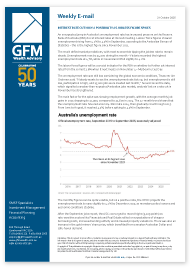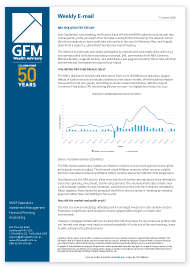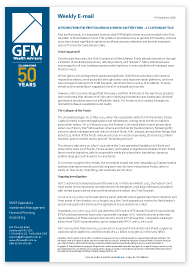WEEKLY E-MAIL

AUSTRALIA’S CONSUMER PRICE INDEX FALLS OFF A CLIFF….
By Paul Nicol
Australia’s Consumer Price Index (CPI) has fallen by 1.9% over the three months to the end of June, putting Australia into a state of deflation for the first time in 22 years.
The Australian Bureau of Statistics (ABS) said the June quarterly slump was the largest fall in the 72 years it has been recording the country’s CPI. The annual rate of inflation over the full ¬financial year 2019-20 finished at -0.3%.

CPI measures the rate of Australia’s inflation and how fast the economy is growing through consumer consumption.
The ABS said the significant fall in the June quarter was fuelled by falls in childcare, education and petrol consumption. Childcare activity fell to 95%, driven by federal government support packages that made childcare free for essential workers. Automotive petrol prices declined by 19.%, and preschool and primary education activity fell 16.2% over the quarter.
Rents for residential dwellings recorded their first quarterly fall since 1972. The sharp -increase in unemployment had prompted significant rent relief for tenants of both residential and commercial property. The decline in the flow of new arrivals to Australia is also impacting some real estate markets, with only with the rental market, but with valuation falling in the larger capital cities of Sydney and Melbourne. The RBA has recently predicted a weak economic scenario and soft outlook for the housing market.
The prospect of a strong recovery in the September quarter CPI seems to have abated due to the high level of COVID-19 cases in Victoria and subsequent lockdown measures which are resulting in considerable uncertainty on how short-term CPI inflation will be affected. There does appear to be signs of an underlying deflationary trend for the coming period driven by government measures to reduce COVID infection rates. This is creating significant economic ambiguity.
Coupled with an unemployment rate that is set to increase for the remainder of 2020, interest rate policy will remain accommodative for the foreseeable future, with the bias towards further easing, especially if the labour market (unemployment) disappoints.
Paul Nicol

Managing Partner
Senior Financial Planner
SMSF Specialist Advisor™
Barron’s Top Financial Adviser 2017, 2018, 2019 & 2020
Authorised Representative No. 230876
If you have any questions or comments, please email me at paul@gfmwealth.com.au
Disclaimer: This document is not an offer or invitation to any person to buy or sell any interest in or deposit funds with any institution. The information here is of a generic nature, and does not take into account your investment objectives or financial needs. No person should act upon this information without firstly seeking competent, professional advice specifically relating to their own particular situation.
Copyright: © This publication is copyright. Subject to the conditions prescribed under the Copyright Act, no part of it may, in any form, or by any means (electronic, mechanical, microcopying, photocopying, recording or otherwise) be reproduced or transmitted without permission. Enquiries should be addressed to GFM Wealth Advisory.




